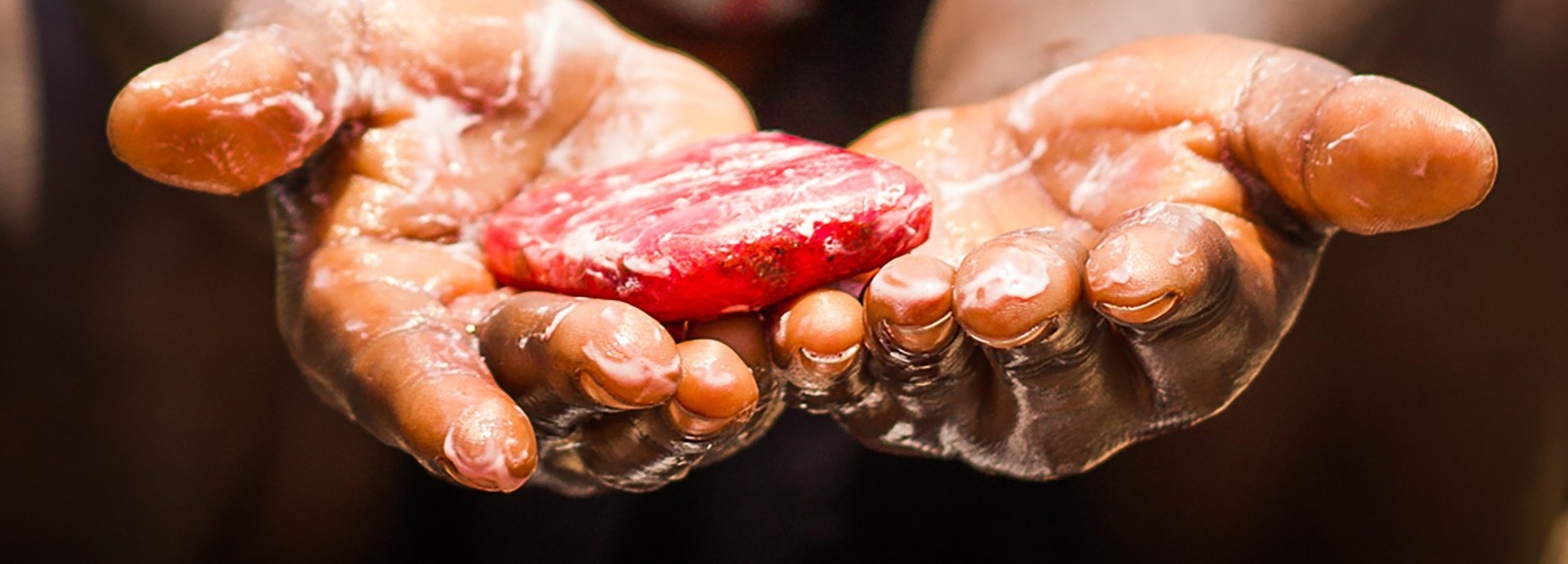The Democratic Republic of Congo (DRC) has long struggled, both socially and economically, under the weight of poor access to water and sanitation. According to the DRC’s 2018 Multiple Indicator Cluster Survey (MICS), the DRC is one of the most water-rich countries in the world, yet only 59% of people have access to a reliable source of drinking water such as pumps, spring caps and cisterns. This leaves 38 million people relying on inadequate sources for their daily intake of water. For too many, the mere act of retrieving water requires a large investment of time, often relegated to girls who would otherwise be at school.
Poor sanitation and hygiene are also a major cause of disease in the DRC. Washing hands with soap alone can reduce the risk of diarrhea by 40%, yet only 22% of Congolese households have basic hand washing facilities, according to the MICS. Chronic malnutrition affects 43% of Congolese children under five and is closely linked to a lack of access to safe drinking water and sanitation services.
IMA World Health (IMA) is poised to leverage its long-standing partnership with the Congolese government to increase access to safe drinking water and improve sanitation.
A young boy washes his hands in Goma, a war-torn city in eastern DRC. (Paul Jeffrey for IMA)
WASH lessons learned
Many countries, including the DRC, have struggled to find cost-effective ways to connect rural households to safe drinking water. IMA has a long history of implementing established approaches to improved water and sanitation across the country. The predominant technology for providing water in rural DRC is spring capping. IMA has provided more than 3,000 capped springs across project health zones. Yet challenges remain with these springs as they are usually located far from communities, creating obstacles for the women and children that fetch water.
The use of hand pumps has also been implemented. During IMA’s Access to Primary Health Care (ASSP) project, IMA installed or repaired 156 pumps across project health zones. Pumps are a critical tool for providing safe water access, but they can be expensive to install and require maintenance.
IMA has continued to work and learn alongside the Congolese government to support expanded WASH infrastructure and build market-based solutions to WASH in the DRC. During ASSP, nearly 2,000 WASH infrastructure projects were completed, including 544 large-scale community cisterns at local health centers, schools and communities. IMA installed 454 sanitation blocks complete with toilets and a handwashing station. We also assisted with the fabrication of nearly 40,000 toilet tiles for distribution to 399 communities.
Market-based solutions to improved sanitation
Building on lessons learned throughout two decades in the DRC, IMA is committed to WASH solutions that ensure sustainability. We know that donor-funded projects are not a stand-alone solution to the DRC’s water issues. While traditional approaches to improving WASH in communities, such as constructing latrines and promoting behavior change, have achieved incremental results, market-based solutions are needed to pave a locally led path toward transformational change and resilience in the DRC’s WASH sector. One such innovative solution is water ATMs.
Water ATMs are automated units that dispense safe drinking water to communities for a small fee. This fee is then used towards maintaining water infrastructure. Community members use credits, bought on their phones, that are transferred to a Near Field Communication (NFC) key to purchase water. Every 1¢ of credit will buy four liters of water. The keys can also be set up to provide water at no cost with families having at least five liters of water every day for free.
Water ATMs can be installed at health facilities to enable clean water access for health care provision and to influence people to seek health care and preventative services. The use of water ATMs creates an equitable, low-cost opportunity to ensure long-term maintenance and functionality of water systems. In the future, funds generated from water sales can subsidize other WASH interventions, like improving household latrines.
Two community liaisons, known locally as relay communautaire, visit a capped spring installed during the ASSP project. This spring now provides clean water to the surrounding villages in Katoka, Central Kasai. (Crystal Stafford for IMA)
Health systems strengthening
Since 2000, IMA has been a key partner in the DRC’s development and humanitarian response, working alongside the Congolese government, development partners, and local and international organizations to revitalize the health system and improve WASH outcomes. Through long-standing relationships with the Ministry of Health and a robust faith-based network, IMA has provided direct assistance in 251 health zones. IMA has consistently and distinctively operated in the country’s most remote and challenging areas where successive armed conflicts and political instability have demanded creativity and unparalleled local partnership.
With such expansive geographic coverage and enduring linkages with the government and local authorities, IMA’s long-term investment in the DRC is working to strengthen health systems. We maintain close relationships with health zone staff serving on management committees at every health facility where our health programming is carried out. These health management committees also have up to 60 community liaisons, known locally as relay communautaire, who regularly visit households and share critical health messaging. These relay communautaire are the key to IMA’s enduring health interventions.
DRC Country Director Dr. Larry Sthreshley says,
Having an integrated health systems strengthening approach as opposed to individual WASH projects is a much more cost-effective and sustainable way of dealing with WASH issues. By working through a health systems strengthening framework, there is a synergism between all projects. Project supervision is carried out by government health zone staff who visit health centers and oversee community activities that are happening within the system.
By tapping into our deep roots in the DRC, we want to see safe drinking water flow to millions.


